Man from Frisco
Brief Synopsis
Cast & Crew
Robert Florey
Michael O'shea
Anne Shirley
Gene Lockhart
Dan Duryea
Stephanie Bachelor
Film Details
Technical Specs

Synopsis
In late 1941, Joel Kennedy, the longtime managing director of the Point Pleasant drydock and shipbuilding company in California, is distraught to learn that the Maritime Commission has given a contract to Matt Braddock. Matt, who has successfully built bridges, roads, buildings and other structures, has never worked in a shipyard before, but believes that by using prefabricated pieces and welding them instead of using rivets, the yard can quickly manufacture structurally sound ships. Kennedy's daughter Diana and his right-hand man, Jim Benson, are also opposed to Matt's seemingly radical ideas, but his son Russell, a high school student, is thrilled by the new technology and is eager to learn from Matt. When Matt arrives with his assistant, Johnny Rogers, everyone in the town gives him the cold shoulder, and he is upset to learn that only one worker has been assigned to fill in the swamp land he has designated to be used for new shipways. Matt's insistence on putting all the workers onto the shipways project further alienates Kennedy, who quits, but when Russ impresses on his father how much their country needs them, Kennedy has Jim instruct the reluctant workers to follow Matt's orders. Matt faces another obstacle, however, when the city council refuses to provide housing for the additional thousand workers that he has employed. The workers eventually wind up in a trailer camp, and when the townsfolk learn of the attack on Pearl Harbor, everyone forgets their differences and pitches in to build Matt's prefab ships. Kennedy and Jim are still skeptical of Matt's plan to assemble a ship's superstructure separately and then lift the 180-ton structure onto the ship's hull, but Matt insists that it can be done in time to meet the deadline for their first ship. One night, Jim sees Diana, to whom he is engaged, share a passionate kiss with Matt, and is so angry that he does not review a crucial welding plan for the superstructure. As a result of Jim's oversight, of which Matt is unaware, the superstructure collapses as it is being lifted onto the hull and Russ is crushed by the falling debris. In the hospital, the dying Russ encourages Matt to continue with his work, but Matt, overcome by grief and believing himself to be responsible for Russ's death, plans to leave town and asks Kennedy to reassume control of the shipyard. When Jim overhears Matt and Kennedy's discussion, however, he realizes that he was responsible for the welding error and confesses his mistake to Kennedy. Now realizing that Matt's plan is feasible, Kennedy and Jim organize the workers and quickly assemble another superstructure. Diana meets Matt at the train station as he is about to leave and persuades him to return to the shipyard with her. There, they witness the successful launch of the first ship, which Mrs. Kennedy christens the Russell Kennedy . Later, Matt has received orders to start prefabricated shipyards throughout the country, and Diana, with whom he is in love, agrees to accompany him on his patriotic mission.

Director

Robert Florey
Cast

Michael O'shea

Anne Shirley

Gene Lockhart
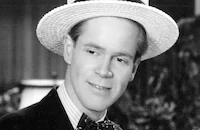
Dan Duryea
Stephanie Bachelor
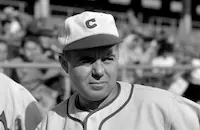
Ray Walker
Tommy Bond
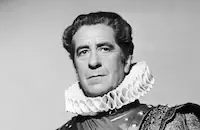
Robert Warwick
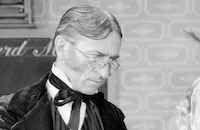
Olin Howlin
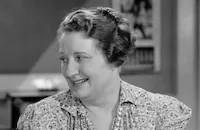
Ann Shoemaker
Russell Simpson
Stanley Andrews
Forbes Andrews
Erville Alderson
Michael Barnitz
Charles Wilson
Ed Peil Sr.
Willaim Nestell
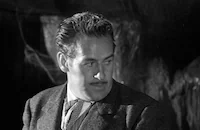
Roy Barcroft
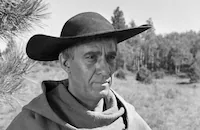
Martin Garralaga
Ira "buck" Woods
Charles Sullivan
William Haade
Sid Gould
Tom London
George Cleveland
Nolan Leary
Hal Price
Jack Low
Harry Tenbrook
Dick Alexander
Sam Bernard
Lee Shumway
George Lloyd
Kelly Flint
Judy Cook
Eddy Waller
Tom Chatterton
Minerva Urecal
Effie Laird
Frank Moran
Gino Corrado
Norman Nesbitt

Chester Conklin
Rosina Galli
George Neise
Monte Montana
Frank Marlowe
Ben Taggart
Patricia Knox
Roy Brent
Grace Lenard
Weldon Heyburn
Sam Flint
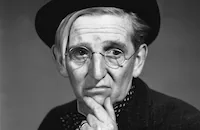
Jimmy Conlin
Wedgewood Nowell
J. C. Fowler
Victor Travers
Art Howard
Helen Dickson
Harrison Greene
John Sheehan

John Hamilton

Larry Williams
Kenne Duncan
Jack Kirk
Jack Gardner
Rex Lease
Virginia Carroll
Roy Darmour
Marjorie Kane
Bud Geary
Maxine Doyle
Crew
Adele
George Carleton Brown
Albert J. Cohen
Earl Crain Sr.
Ken Darby
Franz Gruber
Ethel Hill
Russell Kimball
Vic Knight
Howard Lydecker
Albert Manoff
Arnold Manoff
Jack Marta
Joseph Mohr
Ernest Nims
Robert Pearson
Walter Scharf
Otto Siegel
Marlin Skiles
Howard Wilson
George Worthing Yates

Film Details
Technical Specs

Quotes
Trivia
Notes
The working titles of this film were Man from Brooklyn, Victory Fleet and Victory Ships. The picture was loosely based on the career of Henry Kaiser (1882-1967), an enormously influential civil engineer whose revolutionary methods of prefabricated shipbuilding during World War II greatly aided the United States war effort. Later in his career, Kaiser founded Kaiser Permanente, the first health maintenance organization in the United States. Although a December 7, 1942 Hollywood Reporter news item announced that "Kaiser will be the central character while the background will be the gigantic Kaiser shipyards," the lead character and shipyards were fictionalized. Kaiser did give his full support to the production, in which more than 100,000 of his workers appeared in atmospheric shots, according to Hollywood Reporter. Portions of the film were shot on location at the Kaiser shipyards in Richmond, CA, in addition to other locations in Oakland and San Francisco, and the picture contains much footage of actual shipbuilding procedures. Technical advisor Robert Pearson was Kaiser's press representative. Reviews generally praised the idea of the film, but commented negatively on its routine plot. The Hollywood Reporter reviewer termed the picture "disappointing" due to its "melodramatic Hollywood treatment," despite the fact that it contained "numerous absorbing shots of the great shipyards at Richmond, Calif., and along the line a fund of extremely interesting information is given concerning the high speed operation and how they evolved." Actor Michael O'Shea was originally borrowed from Hunt Stromberg's company for the production, although he was under contract to Twentieth Century-Fox by the time filming began. According to a modern source, director Robert Florey also helmed a short subject about Kaiser.












